Velavadar – Welcome to Wolf Country
August 12, 2020
2 Comments
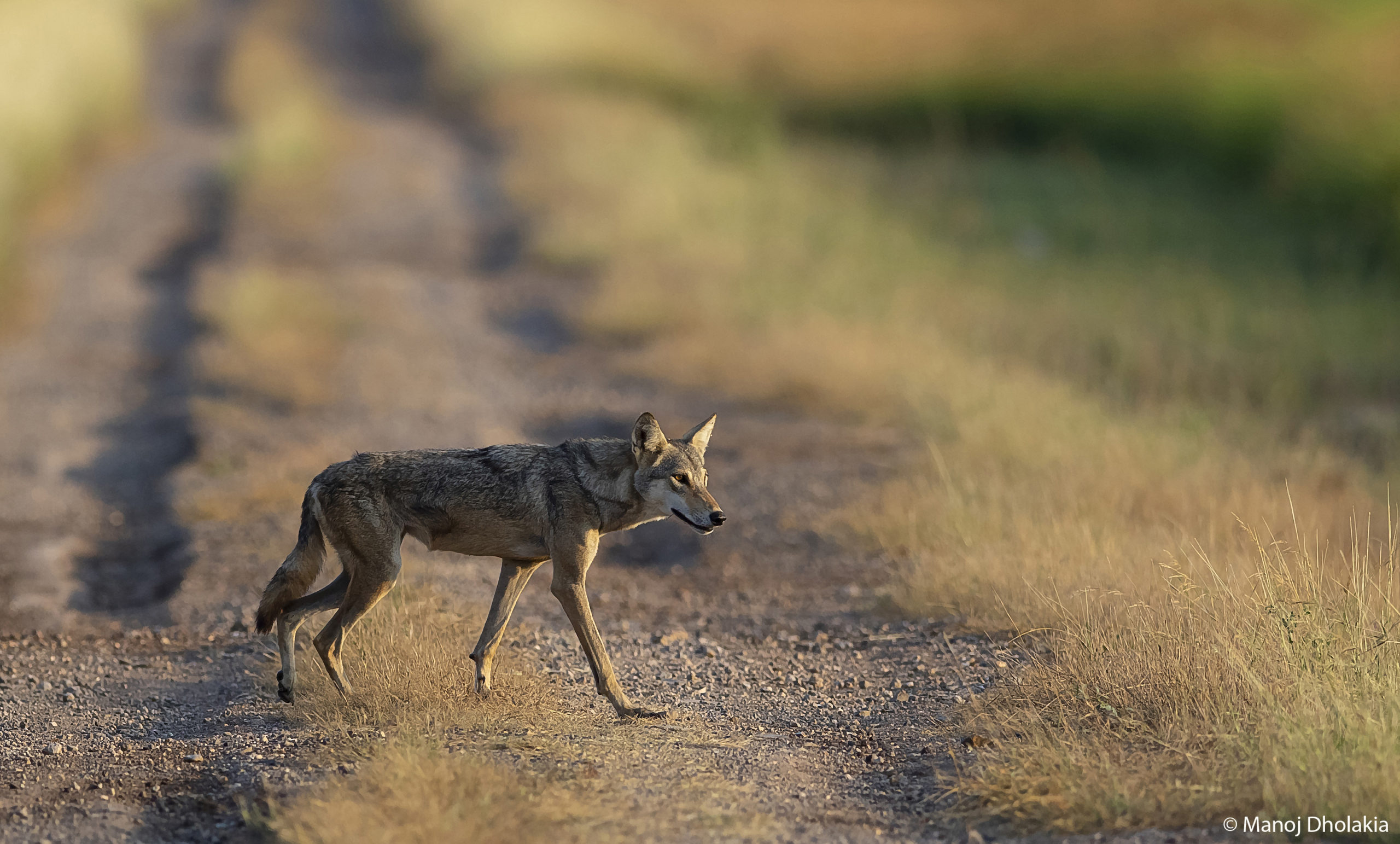
Velavadar National Park in Gujarat’s Bhavnagar district is a hidden gem. This national park spans just about 34 square km but holds an abundance of wildlife from butterflies and dragonflies to the Indian grey wolf. Here, you can see some of India’s largest herds of blackbuck, the handsome Indian antelope. The key predator of Velavadar is the Indian wolf. Velavadar is also one of the most likely places to view a striped hyena, a species that is rarely seen elsewhere because of its nocturnal habits. The drivable tract through the national park can also yield sightings of many smaller mammals like the golden jackal, jungle cat and hare. Indian fox could be seen in the scrub habitat outside the park.
The grasslands of Velavadar offer close viewing of various species of birds – larks, quails, painted and grey francolin, shrikes, wheatears, sparrow larks and other characteristic birds of the bush. The globally-threatened Stolickza’s bush chat is one of the specialties of this national park. The tall and striking-looking saras crane is a subcontinent endemic that is seen in flooded grassland areas of the park, while flocks of demoiselle and common cranes gather in winter at the wetlands. River and riverside birds can be watched at the Porvalia and Alang Rivers that run alongside the park to its north and south respectively, and some of these sites can be prolific for watching flocks of sandgrouse coming to drink.
Velavadar is also well-known for its concentration of raptors. Short-toed eagles are often seen, while Aquila eagles like imperial, greater spotted and steppe could also be seen at Velavadar in winter. Other raptors often seen are kestrel, laggar falcon, black-shoulder kite and shikra.
The most spectacular sight is the winter roost of harriers, mostly Montagu’s and pallid but also marsh and the occasional hen – thousands of them have been seen settling down to roost among the grasslands on a winter evenng. This is widely rated as the world’s largest harrier roost. Eurasian eagle owl hunts here and could be seen even in daylight.
During the monsoon, Velavadar is the top breeding site for the endangered lesser florican. The lesser florican is best seen during its spectacular nuptial display.
The wetlands in and around the park can be good for watching flamingos, pelicans, storks, ibises, spoonbill and other wetland birds can be seen.
I have often visited this national park during the 1980s and ‘90s when the only place to stay was the forest department’s guesthouse called Kaliyar Bhavan. During one of my stays, I had the opportunity to watch a large number of harriers arriving to roost in the grasslands. I showed the roosting site to William Clarke and later to the late Dr. Roger Clarke, who called it the world’s largest harrier roost. I was also the facilitator and guide for a raptor-banding initiative at the park and documentary films shot here like Antelope of the Kings.
It was only about a decade ago that private entrepreneurs began to look at this attractive destination to set up resorts. Today, Blackbuck Lodge and the recently opened Blackbuck Safari Lodge are the places to stay at Velavadar.
BLACKBUCK SAFARI LODGE
Blackbuck Safari Lodge is an 18-cottage room resort with a water body, swimming pool and wide-ranging leisure facilities. Snehal Sharma, director of Terra Ecotourism Pvt. Ltd, together with other promoters with an interest in nature and renewable energy, launched Asiatic Lion Lodge at Gir in 2016 and Blackbuck Safari Lodge in 2019.
Sharma says, “I enjoyed exploring Gir when I was 12 years old. Gradually I started understanding the nature, the characteristics of wildlife and their connections with the forest. When I visited the other national parks in India, a thought came in my mind that a great opportunity of developing an organized wildlife lodge is awaiting where the tourists can enjoy leisure time amid nature, and make base to get a closer look of diverse flora and fauna in the forest. So in 2007 we started a hotel at Gir which was eventually sold to club Mahindra. After that, we established Asiatic Lion Lodge which proved to be a perfect place for the bunch of wildlife enthusiastic and leisure tourists’’. Asiatic Lion Lodge is affiliated to the Eco-Tourism Society of India, recently renamed the Responsible Tourism Society Of India.
` We applied sustainable construction practices for Energy, Material, Water and Land Conservation in the development of Asiatic Lion Lodge. The entire process of construction is done by with the local workers’’, Sharma says, “one of our most unique parts of green construction practice is Root Zone technology STP plant, which works without electricity and chemicals. It recycles 22,000 liters of wastewater per day and uses that recycled water in the garden of the lodge’’.
He adds that they applied the fundamental principles of eco-tourism in operation of our Lodge. “We plant and grow organic vegetables for in-house consumption. It has already adopted the concept of being “Atmanirbhar” with zero-mile sourcing since the inception of the property. We also ensure minimum usage of plastic. We are providing vast opportunities for employment to the local people by giving them training and hiring in our lodge. Our 60 to 70 percent of staff members are localities from nearby villages. We prefer to purchase Milk, groceries, eggs and other items from local people only’’, he says, adding proudly, “ we believe in “Let’s all grow together” policy. For that, we were awarded the Eco Corporate of the Year 2017 – Yes Bank Natural Capital Award in Eco-Tourism Category. We also ranked 1 in Specialty Lodging since our starting On Trip Advisor and also awarded Trip Advisor Hall Of Fame Award’’.
Following the success of Asiatic Lion Lodge, Sharma says they looked at Velavadar as another unique destination for exploring wildlife in Gujarat.“ We observed that there is a great scope for developing proper wildlife tourism which can also serve the purpose of spending leisure weekends. People were not going due to a lack of facilities. So we decided to establish property and started construction in 2016 of a resort with 18 deluxe cottages room, restaurant, swimming pool, spa and conference hall’’, says Sharma. He says he was looking at Velavadar as a destination where people would come for weekends and short breaks in natural surroundings. “Therefore, the lodge had to blend leisure facilities with wildlife tourism. We have hired and well trained our staff to maintain the standards of housekeeping, food and leisure activities, but they can also guide the tourists for wildlife exploration. We hired a naturalist and his main goal is sensitize curious leisure tourists about wildlife and responsible tourism, ‘’ Sharma states,“ during their stay guests can enjoy regular small sessions on birds, wildlife, nature and wildlife photography. We also arrange village visits. The food includes local cuisine and we use home-grown or locally-grown ingredients’’.
Started in October 2019, Sharma says they are happy with the response to The Black Buck Safari Lodge. We have a variety of guests from local, national and international travelers. We are receiving the feedbacks from tourists expressing the pleasant surprise that they never knew about Velavadar National Park though they live in nearby cities!’’.
BLACKBUCK LODGE
Blackbuck Lodge has no visible boundaries separating its cluster of cottages from the Savannah wilderness of Velavadar National Park, with water bodies and rustic walls that make it look like an African resort. This aesthetically-appealing property has cottages set amid grasses where you can see butterflies and birds, and blackbuck, nilgai or even wolf often pass through the property. The centerpiece is a water body where birds can be watched while relaxing in gazebos, dining in the classy restaurant or even browsing in the extensive wildlife library.
Mickey Desai says, “I had seen bush estates in South Africa but there were few places in India that offered a close experience to nature and wildlife. We, therefore, bought several acres of open land along the borders of the Velavadar National Park in the Kathiawad region of Gujarat which has an astonishing variety of birds and high density of mammals like antelope, wolf and hyena, but no resort. Its topography is like the African Savannah, with vast expanses of short and medium-sized tropical grasslands broken by scrub and trees. Therefore I followed my inspiration from African lodges when designing the resort’’. He says they allowed the Savannah grasses to take over and create a wilderness. “We took only a small footprint from the acres we own for the accommodations. Since wildlife began to move through the grasslands, we also created water bodies that would attract them’’, Desai explains, “the flagship of Velavadar is the blackbuck or Indian antelope, this is the best park in India to see this species. Blackbucks frequent the grasses around the cottages and can be seen by guests while relaxing on their patios. The blue bull antelope also comes into the property. Waterside and wetland birds can be seen at the water body from the dining room itself. The harrier is a group of hawks that are seen in one of their largest numbers in the world at Velavadar in winter, and some of them come to our water bodies. Butterflies frequent the vegetation. Even the endangered wolf has been seen in the property. Blackbuck Lodge opened with a few rooms in 2011 and since then we have expanded till now we have 14’’. He says he got his drivers and spotters trained by experienced naturalists. “Many guests come here to look for birds like Stolizka’s bushchat. In the monsoon the park is closed by the surrounding areas are breeding grounds for the endangered lesser florican and the threatened saras crane. The park is a paradise for birdwatchers, so the guides and spotters need to be able to identify them’’, Desai explains, adding, “while being in a remote area and not one of the main parks, we make no excuses in giving services to guests – the furniture, the linen, bathroom fixtures, the brands of toiletries, the floorings, even the selection of teas and coffees in the rooms, have been thought of. Like in African resorts I have provided alfresco showers. The service areas are also equipped with washing machines, dish washers and so forth. It was not easy to build in this area where there are few workers but we got good support from the government authorities’’. He also farms some of his own vegetables using cow dung and other natural manures.
However, Desai is most enthusiastic about the Bush Dinners. “Enchanting dinners under the moonlight in the wilderness are my most memorable experiences of African holidays’’, he explains, “here too, we arrange dinner among the wild bushes. Guests get to a site near a water body in time for sunset, and then the dinner begins with barbecued starters continuing to a buffet under the stars. Guests love these bush dinners. A pool, a tented spa and a permanent barbecue area are on the anvil’’.
Desai says he is now building more resorts. “While I have other businesses like a travel agency, I love to spend time at Blackbuck Lodge looking into details which is possible almost every weekend because it is just three hours from my house in Ahmedabad and an hour drive from my ancestral farmland in Dhanduka. This passion has led me to plan more resorts in the midst of nature’’.
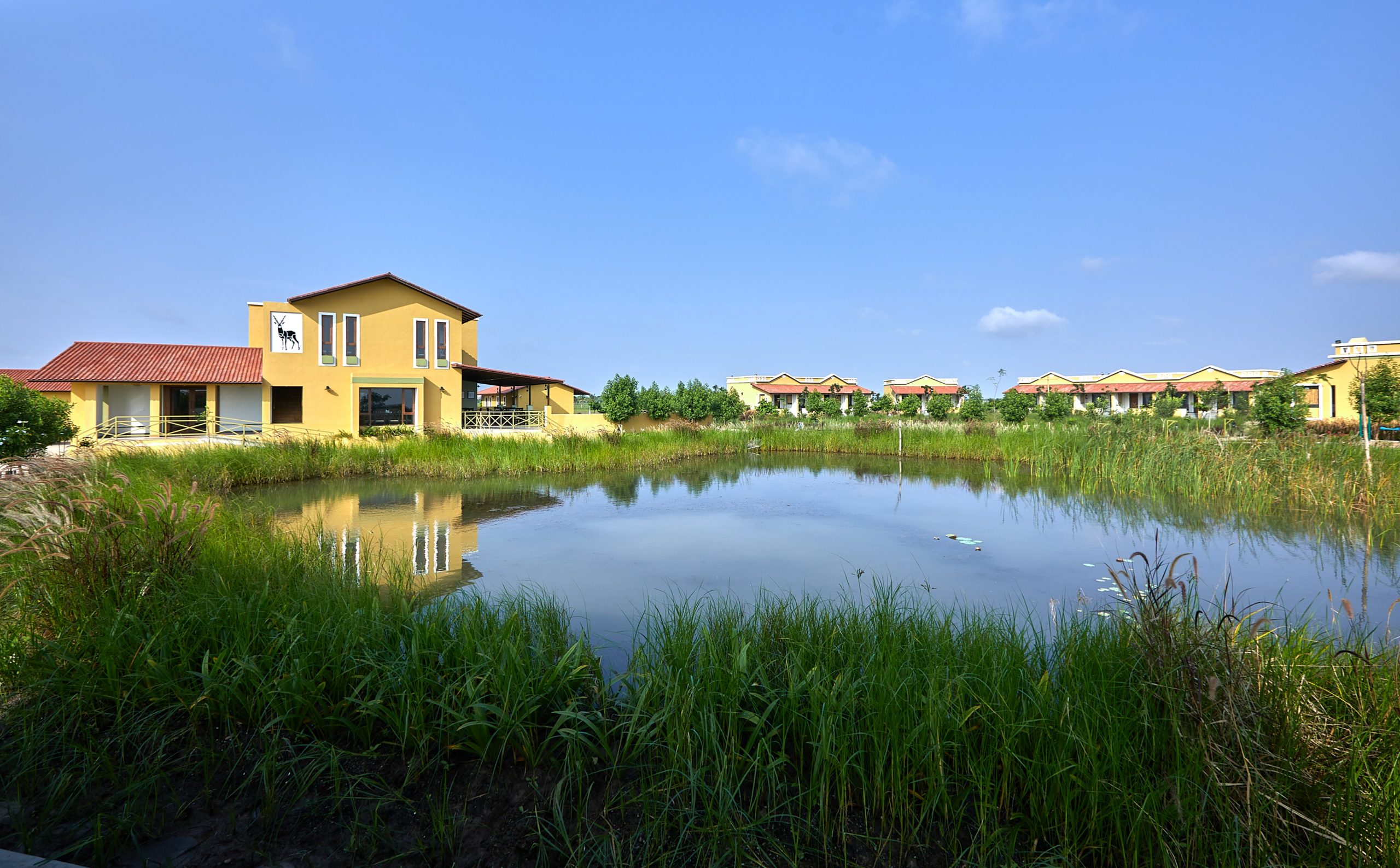
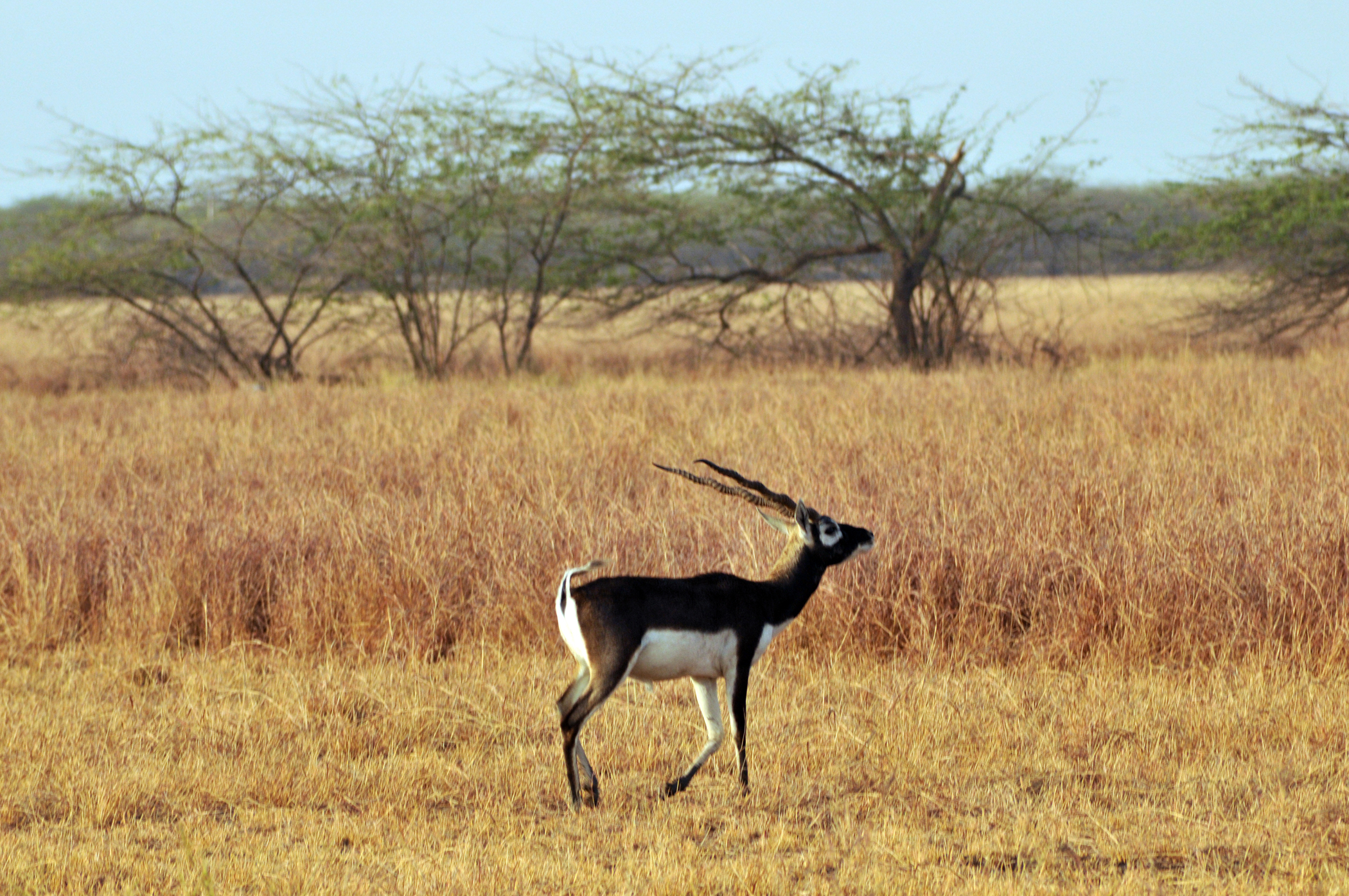
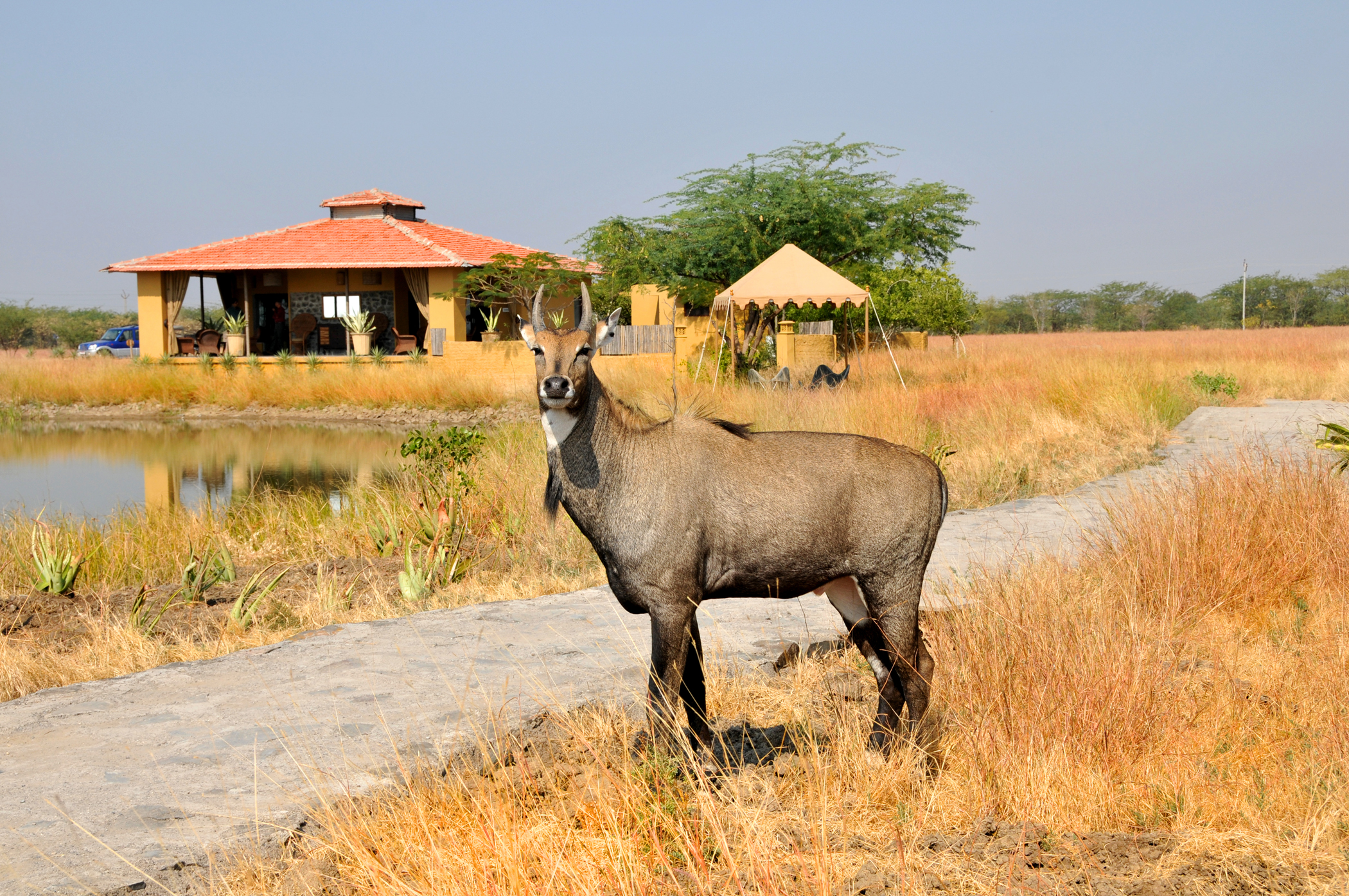
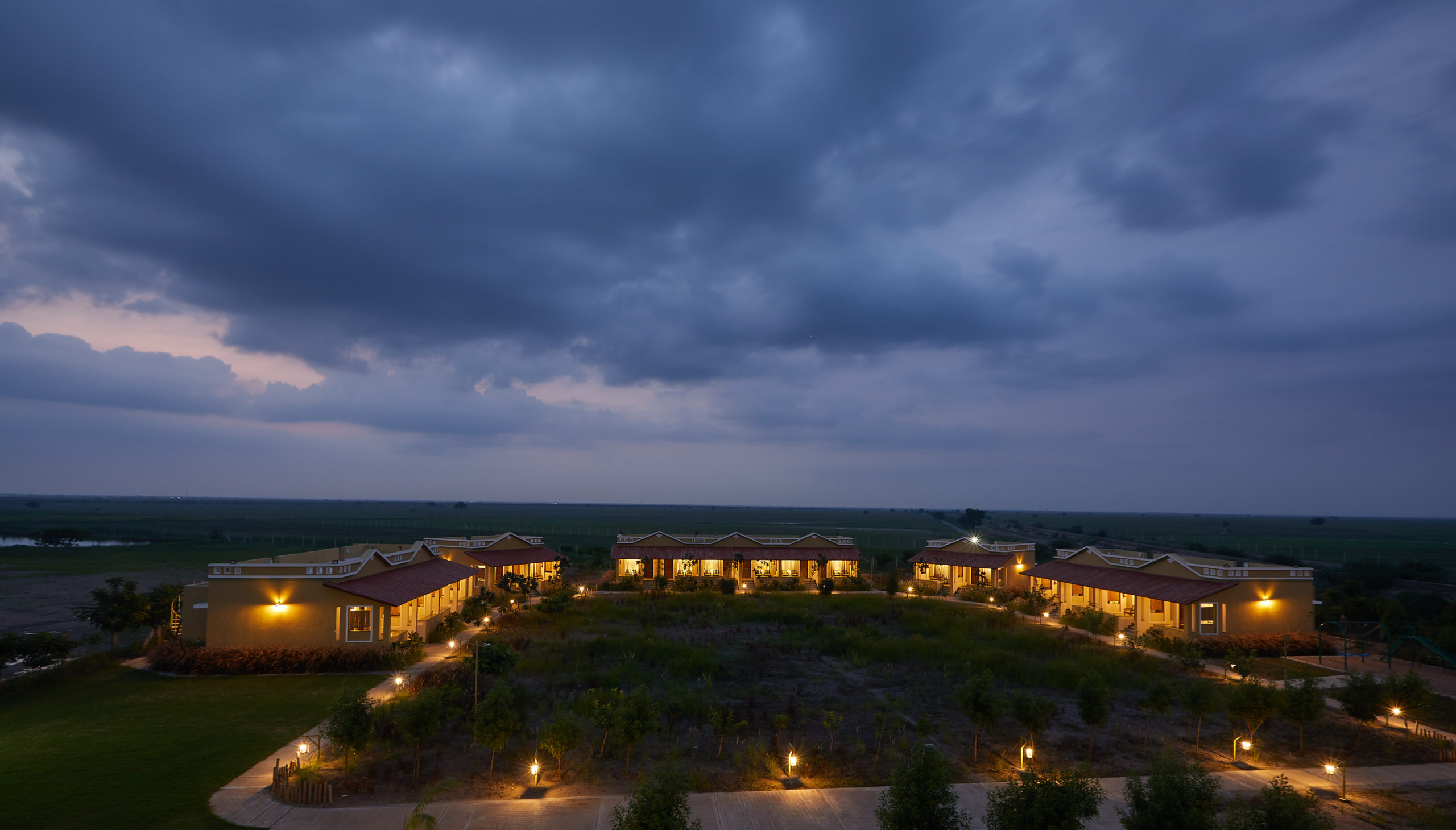

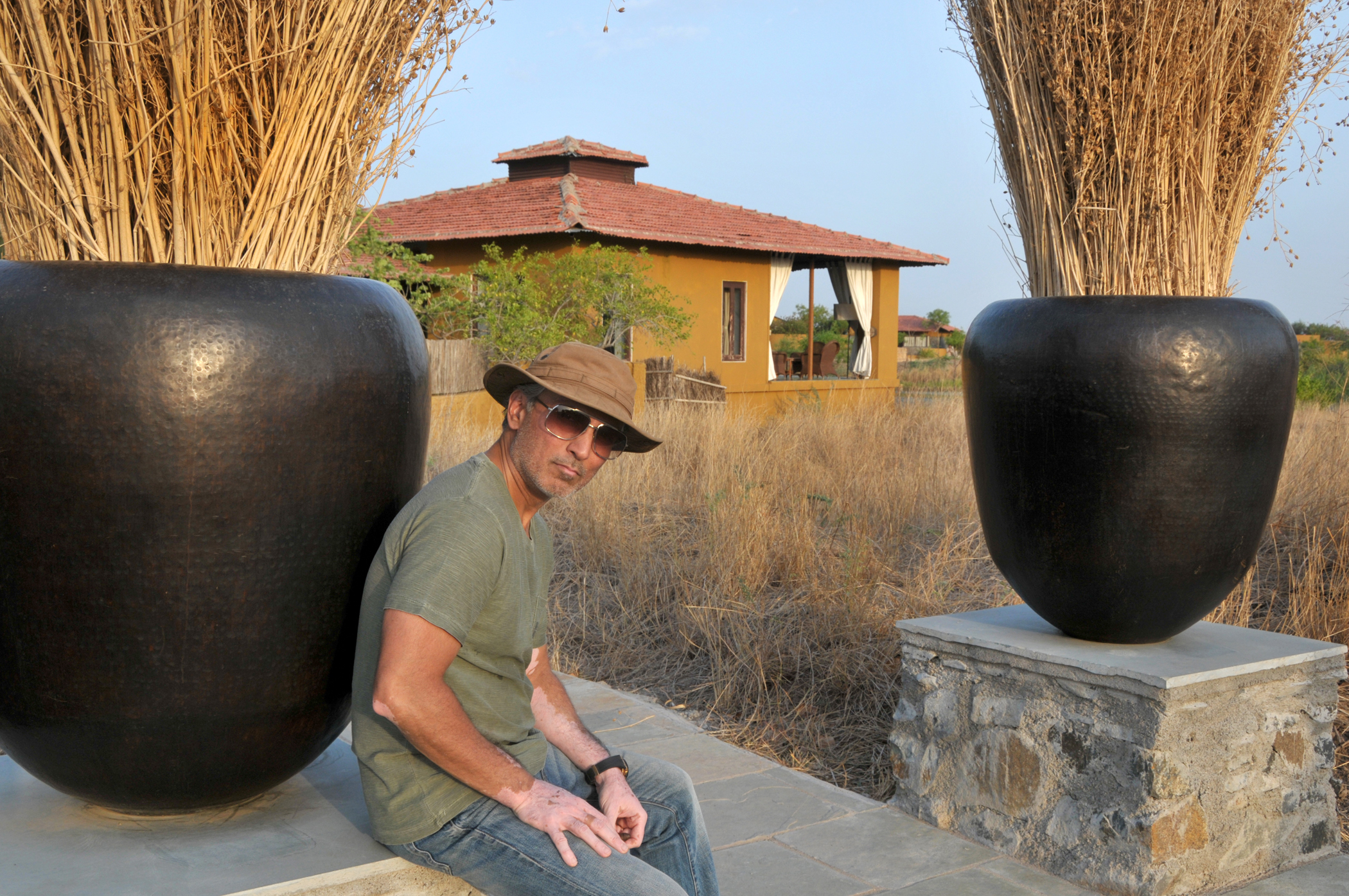



Astonished and now excited to visit as soon as possible
Nice place